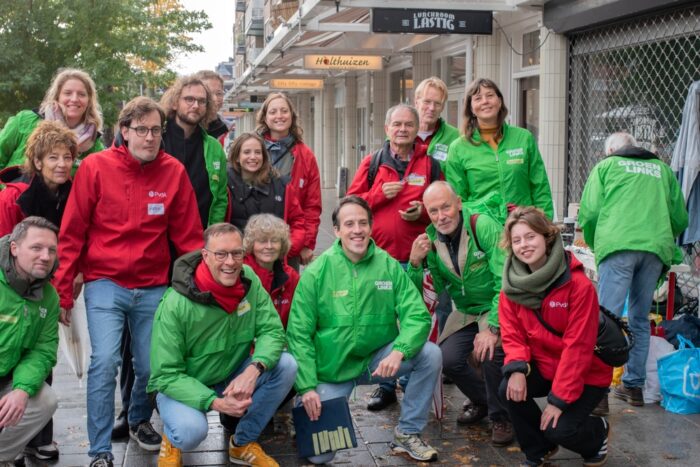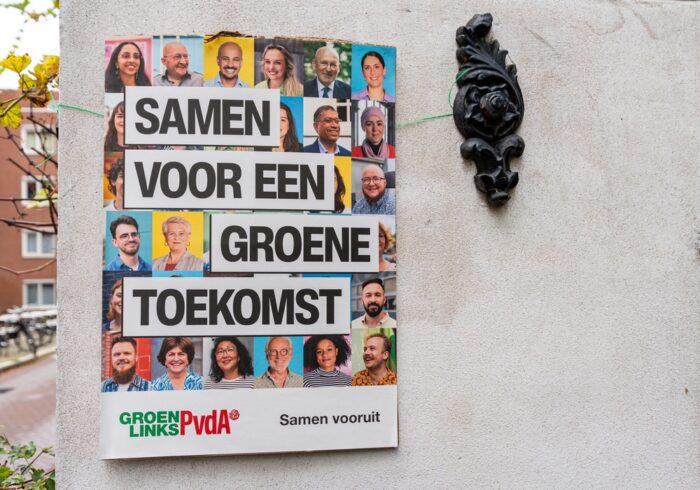The Progressive Post
Missed opportunities, migration and a last chance – crafting a new narrative for Germany’s SPD

As the heavily defeated SPD prepares to enter a coalition with the CDU, the next four years will be pivotal for both Germany’s democracy and the future of the Social Democrats. To regain their footing, the SPD must focus on defining its own clear and consistent narrative, addressing key social justice issues and progressive values while navigating in a coalition environment.
It is worthwhile to remember that the snap election was called because the governing traffic-light coalition could not agree on a common budget. The Liberals had planned to leave the government at least since late summer 2024, calling the date ‘D-day’ in their simulation games. The underlying conflict is a real one: how to stop the dramatic decline in public investment that Germany has suffered from since the 1990s.
However, the question of state financing was just a side note during the campaign. You could easily go on: this election was not about finding a new role in world politics or how to revitalise European solidarity after the post-war world order has collapsed. It was not about joining European forces during a crumbling transatlantic partnership. It was not about how to fight climate change, even though the consequences of the flood in 2021 are still visible in the valley of the river Ahr. It was not about how to protect the public debate from Russian web brigades. It was not about inflation and energy prices. It was not about the dramatic shortage of housing in urban Germany. It was not about how to make the half-done green transition a full success. It was not about a fair education system or lifting Germany’s full potential. It was not at all about any positive vision of what Germany could be in 2030.
The three most important issues of the election campaign: migration, migration, migration
Instead, the most important issue was migration. Not in the sense of integrating migrants into the labour market or society, nor in the sense of how the newly agreed Common European Asylum System could work. The debate was mainly about how to send criminal and irregular immigrants back home more quickly. The media contributed to this focus, and attacks by people with migration backgrounds fuelled the debate. Most media coverage was on migration. In short, the whole campaign was a gift to the far-right AfD. Even if parties positioned themselves against the migration policies of the AfD, the far right remained the central angle of the debate. Ever since 2015, the party has successfully built up a fear-based narrative, suggesting that immigration, particularly from Muslim-majority countries, undermines Germany’s identity, wealth and security.
Switch off/switch on: why this does not work when it comes to public discourse
Chancellor Olaf Scholz was the most prominent face of the Social Democratic campaign, which is not as self-evident as you might think. Four years ago, he won the last campaign with his umbrella strategy, claiming respect for everyone, a slogan that successfully reached out to different groups of the electorate.
During his three years as chancellor, Scholz’s strategy was to present himself as a calm and honest broker within his fragile three-party coalition. Again and again, he tried to bridge the growing differences between the Greens and Liberals. One could give him some credit: he was able to stabilise the centrifugal forces of this unlikely coalition for three years. But the price was high: the position of the SPD and its central figure was almost absent in public discourse. Scholz was associated with the permanent struggle in his government, lacking leadership and a clear vision of why the SPD should lead the government. It was hardly possible to identify his core political projects.
The beginning of the campaign was overshadowed by a debate within the party and the Berlin-based media bubble about whether Boris Pistorius, the highly popular minister of defence, should be the SPD’s frontrunner. It took the party leadership over a week to clarify that Scholz should be the candidate.
Once the personal issue was solved, the party laid out its program. The manifesto titled More for you. Better for Germany outlined the party’s vision for the nation’s future, focusing on economic revitalisation, social welfare and enhanced security.
It was a Social Democratic classic, demanding heavy investment in education and housing, public infrastructure, securing the welfare and pension system and a fairer distribution of the tax burden. 95 per cent of taxpayers should be relieved of the burden, while very high incomes should pay higher taxes. In addition, the SPD was committed to introducing a wealth tax.
In general, the Social Democratic demands were popular and resonated with the electorate. Most of the claims were supported in focus groups and by the broader public. Yet, all those issues and demands listed in the manifesto played only a side role in the election campaign.
Partly driven by the media and their focus on migration, and partly by his own choice, the chancellor tried to portray himself as strict on migration. As early as October 2023, he was quoted in the most popular political magazine, Der Spiegel, with a grim face and the statement “We finally have to deport people on a large scale”.
By the beginning of 2025, roughly eight weeks before the election, the candidate and the party tried to switch on the discourse. During the TV debates, Scholz attacked Merz for being too focused on those who have been and are ignorant of the ordinary worker. Also, on social media, the campaign started and went better than expected. But: it was too late. After three years of absence from public discourse, the SPD and its candidate could not connect to any Social Democratic narrative. There was no coherent message, no distinct slogan, no vision, let alone a candidate who could personify why the SPD would be a better choice.
Being pro-democratic is right, but not enough
By the end of January, the CDU decided to join forces in the Bundestag with the AfD to push through a plan for stricter border controls. This was broadly regarded as a breakup of the so-called ‘firewall’ of the main democratic parties against the AfD. Merz has always stated that he would not cooperate with the extreme right, so his credibility was undermined. The outcry in media and civil society was enormous; even the two major churches in Germany publicly reminded the Christian Democrats not to collaborate in any way with the AfD. For sure, this harmed the CDU. Most polls rated the CDU around 32 per cent before the joint vote with the AfD, but it ended up with 28.5 per cent on election eve. However, the SPD could not benefit from it.
During its more than 160 years, the SPD has always stood up for democracy and the last speech of the Social Democratic leader Otto Wels against the Nazi Enabling Act in 1933 can be literally quoted by most SPD members. Respectively, the critique by the SPD on the CDU’s and AfD’s joint vote was clear and loud. But it did not work to mobilise voters for the SPD. Those who would embrace a clearly progressive, democratic, and anti-AfD stance voted for the left-wing Die Linke, which surprisingly won almost nine per cent.
No workers, no social justice, no voters
The SPD’s result was as bad as expected. 16.4 per cent: the worst result at the federal level since 1945. Just 18 per cent of SPD voters were convinced by the candidate, while 52 per cent voted SPD because of its programme. The SPD was third among workers, after the CDU and AfD. This is also true for members of trade unions. 52 per cent of the general electorate claimed that the party neglects the interests of employees. The competence score in the field of social justice went down from 40 in 2021 to 26 in 2025.
Where to go next, SPD: be clear, be loud!
The SPD will very likely be the CDU’s coalition partner. These four years under a centrist government may be time bought for Germany’s democracy. And it will definitely be a crucial time for Germany’s Social Democrats.
The SPD should
…within the next weeks:
– agree with the conservatives on a coalition with some distinct Social Democratic projects, focusing on a fairer distribution of wealth and income, thereby revitalising the socio-economic dimension of political discourse. First and foremost, it has to rebuild its reputation for being the party of social justice.
…within the next months:
– focus on a coherent and consistent narrative of its own. This means not only addressing its own issues, messages and projects, but also defining the battleground. It will not win in a field defined by others. Social Democrats will not convince anybody in an environment where politics is framed by the claim that ‘migration is the mother of all problems’ (AfD). Therefore, it must craft its own perspective, deploy it and repeat it again and again, thereby influencing the broader political culture and public discourse. For sure, this is a long-term project. But it has to be set up within the next months.
…within the next years:
– show a great deal of republican reason. It has to be a reliable part of a stable government, fostering European solidarity and stabilising liberal democracy in Germany. But it also has to be a distinct and visible political actor in its own right. This will be challenging as a minor partner in a coalition government. But it will be crucial for the SPD to survive. It needs to define not only progressive projects that point beyond the legislature, but also bridge between safety and transformation. It has to address both fair wages, affordable housing, stable pensions, social security, economic fairness, and the collective good, but also green transformation, digitalisation, and gender policies. It must address its classic milieu and modern, urban, liberal-minded progressives. This might be the SPD’s last chance.
Photo credits: Shutterstock.com/Achim Wagner




